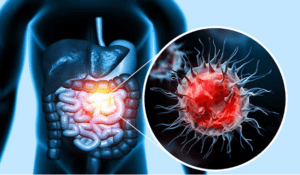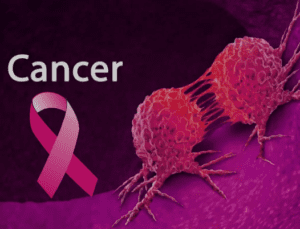Outline of the Article
- Introduction
- Brief overview of cancer
- Importance of understanding and raising awareness
- Understanding Cancer
- Definition and basic understanding
- Types of cancer
- Common causes and risk factors
- Cancer Statistics
- Global prevalence
- Impact on various age groups and demographics
- Symptoms and Early Detection
- Recognizing common symptoms
- Importance of early detection

- Cancer Diagnosis
- Medical procedures for diagnosis
- Importance of accurate diagnosis
- Treatment Options
- Overview of various treatment methods
- Personalized treatment approaches
- Cancer Prevention
- Lifestyle changes for prevention
- Importance of regular screenings
- Support for Cancer Patients
- Emotional and psychological support
- Importance of a strong support system
- Advancements in Cancer Research
- Recent breakthroughs and innovations
- Hope for the future
- Cancer and Mental Health
- Impact on mental well-being
- Coping strategies for patients and caregivers
- Nutrition and Cancer
- Importance of a healthy diet
- Foods that may aid in cancer prevention
- Cancer Awareness Campaigns
- The role of awareness in prevention
- Notable campaigns and their impact
- Myths and Facts about Cancer
- Addressing common misconceptions
- Dispelling myths surrounding the disease
- Inspiring Stories of Survival
- Personal narratives of cancer survivors
- Resilience and hope in the face of adversity
- Conclusion
- Recap of key points
- Encouragement for awareness and support
Cancer: Unraveling the Mystery and Offering Hope
Introduction
Cancer is a word that strikes fear into the hearts of many, yet understanding this complex disease is crucial for effective prevention and treatment. In this article, we delve into the various facets of cancer, from its basic definition to the latest advancements in research.
Understanding Cancer
At its core, cancer is a group of diseases characterized by the uncontrolled growth and spread of abnormal cells. This section explores the different types of cancer, shedding light on the common causes and risk factors associated with this formidable enemy of our health.
Cancer Statistics
Globally, the impact of cancer is significant, affecting people across all age groups and demographics. By examining the statistics, we gain insights into the prevalence of cancer and its far-reaching consequences on a global scale.
Symptoms and Early Detection
Recognizing the early signs of cancer is paramount for timely intervention. This section outlines the common symptoms that individuals should be aware of, emphasizing the importance of early detection in improving prognosis.
Cancer Diagnosis
Accurate diagnosis forms the foundation for effective treatment. Here, we explore the various medical procedures used in diagnosing cancer, highlighting the importance of precision in the diagnostic process.
Treatment Options
The journey through cancer involves various treatment modalities. From surgery to chemotherapy and immunotherapy, this section provides an overview of the available options and the trend toward personalized treatment plans.
Cancer Prevention
Preventing cancer is often as crucial as treating it. Lifestyle changes, such as maintaining a healthy diet and engaging in regular screenings, play a pivotal role in reducing the risk of developing cancer.
Support for Cancer Patients
Facing cancer is not only a physical battle but also an emotional one. This section addresses the need for robust emotional and psychological support for patients and the importance of a strong support system.
Advancements in Cancer Research
Amid the challenges, there is hope on the horizon. This part of the article explores recent breakthroughs and innovations in cancer research, pointing toward a future with improved treatment options and outcomes.
Cancer and Mental Health
The toll of cancer extends beyond the physical realm, affecting mental well-being. Here, we discuss the impact of cancer on mental health and provide coping strategies for both patients and their caregivers.
Nutrition and Cancer
A healthy diet is a cornerstone of overall well-being. This section examines the role of nutrition in cancer prevention and highlights specific foods that may contribute to a lower risk of developing the disease.
Cancer Awareness Campaigns
Raising awareness is key to preventing and treating cancer. This segment explores the role of awareness campaigns, examining their impact on public perception and behavior.
Myths and Facts about Cancer
Dispelling myths and addressing misconceptions is essential for informed decision-making. This section tackles common misunderstandings surrounding cancer, offering clarity on the realities of the disease.
Inspiring Stories of Survival
Amid the challenges, stories of resilience and triumph emerge. Here, we share inspiring narratives of cancer survivors, showcasing the strength and hope that can be found in the face of adversity.
Conclusion
In wrapping up our exploration of cancer, it is essential to recap the key points discussed. By increasing awareness, supporting those affected, and fostering ongoing research, we collectively contribute to the fight against cancer.

FAQs
- What are the common symptoms of cancer?
- Look out for persistent changes in health, such as unexplained weight loss, lumps, or changes in bowel habits.
- How can I support a loved one facing cancer?
- Offer emotional support, accompany them to appointments, and assist with daily tasks to ease their burden.
- Are there lifestyle changes that can help prevent cancer?
- Yes, maintaining a healthy diet, regular exercise, and avoiding tobacco and excessive alcohol consumption can reduce the risk.
- What recent breakthroughs have been made in cancer research?
- Advances include targeted therapies, immunotherapy, and precision medicine tailored to individual genetic profiles.
- Where can I get more information and support for cancer?
- Explore reputable sources like cancer organizations, support groups, and healthcare professionals for reliable information and assistance.

